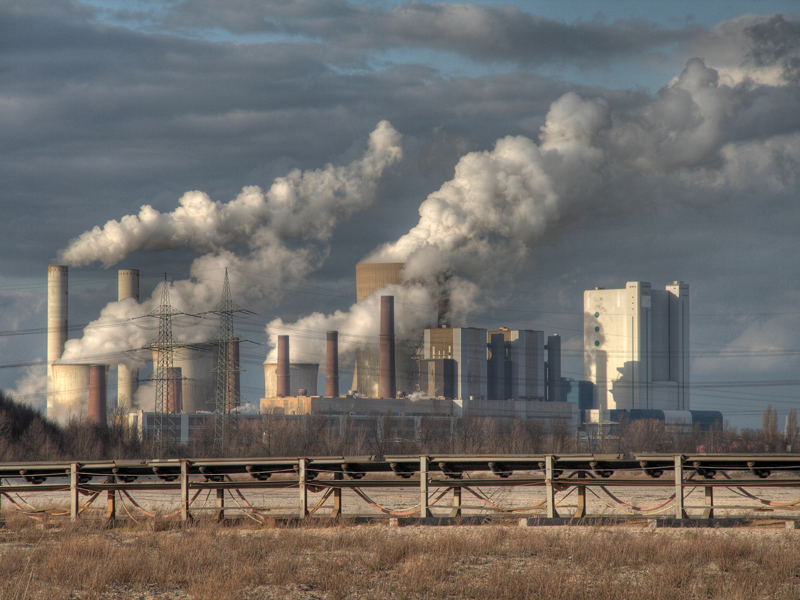False climate solutions are benefitting no one
Governments within the developed world must re-evaluate their current economic systems in order to drastically cut carbon emissions at the source

In a recent special report, the Intergovernmental Panel on Climate Change (IPCC) argued that addressing climate change will require fundamental changes to the way we manage forests and farmland. The data is new, but the underlying conclusion isn’t: for over a decade, scientists, environmentalists and civil society organisations have been warning that our prevailing – and deeply unjust – model of production and consumption lies at the root of the climate crisis. Protecting the planet on which our survival depends will require nothing short of a system change.
The world – and the developed countries, in particular – has built an economic system focused on capital accumulation, which privileges corporate profits over the wellbeing of people and the environment, entrenching injustice and rewarding its perpetrators. This process has been unfolding for centuries, but has accelerated in recent decades as a select few have acquired an ever-larger share of total wealth and political influence. Today, just 100 corporations produce 71 percent of greenhouse gas emissions. The wealthiest 10 percent of people are responsible for around 50 percent of greenhouse gas emissions, while the poorest 50 percent produce 10 percent of emissions.
If we keep indulging the fantasy that some ‘silver bullet’ solution will rescue us from the climate crisis, progress will be impossible
Finding new solutions
Unwilling to stand up to those who are destroying our planet, political leaders have latched onto technological solutions, including geoengineering approaches that promise to suck already-emitted carbon out of the atmosphere. Even the IPCC included assumptions about such technologies in many of its modelled pathways for keeping global temperatures from rising more than 1.5 degrees Celsius above pre-industrial levels.
But geoengineering technologies are unproven, unsafe and unrealistic. Consider bioenergy with carbon capture and storage (BECCS), the leading proposed path to net-negative emissions. BECCS entails growing certain crops as biomass, burning the plant material for energy, capturing the CO2 emitted during combustion and storing it underground. That sounds promising until one recognises that growing biomass on the necessary scale would require an estimated three billion hectares – twice the Earth’s currently cultivated land.
Any attempt to implement BECCS would thus be impossible without mass deforestation and soil degradation in the tropical belt of the Southern Hemisphere, where most fast-growing biomass is produced. Land grabs are virtually guaranteed. Moreover, as agricultural land is transformed to produce biomass, food prices could rise, fuelling hunger and malnutrition. Further, the destruction of vital ecosystems would eliminate the livelihoods of local communities and indigenous peoples.
Hyping BECCS and other misleading promises – such as Reducing Emissions from Deforestation and Forest Degradation initiatives and carbon-trading schemes – is expedient for rich countries, corporations and elites, because the technology charade enables them to continue profiting from the climate crisis they have created. But, by distracting from real imperatives, it allows the crisis to deepen and disproportionately affect those who have contributed the least.
The importance of accountability
It is time for those who caused the climate crisis to take responsibility for addressing it. To this end, developed-country governments must take the lead in drastically cutting emissions at source by pursuing a comprehensive transformation of their energy, transport, food and economic systems.
Essential steps include ending investment in fossil fuels, transforming our energy systems towards community and public renewable energy systems, abandoning destructive practices like industrial agriculture and logging, community management of biodiversity and water resources, and reorganising urban life to support sustainability. Neoliberal trade and investment agreements that prioritise the interests of business over environmental sustainability and human rights must be reversed to allow for these solutions.
At the same time, developed-country governments must provide large-scale public financing to support the much-needed transformation in the developing world. To succeed, the transition must be just and ensure the rights of workers, peasants, women, migrants and indigenous peoples. Here, public and community ownership is crucial.
Social movements in the Global South are already providing models of this approach. For example, La Via Campesina – an international movement comprising peasants, smallholder farmers, agricultural workers, rural women, youth, indigenous people and others – has shown how peasant agriculture and agroecology can cool the planet, feed its inhabitants, nurture its soil, support its forests, safeguard seed diversity and protect water basins.
Moreover, community forest management helps to safeguard the forests, protecting the livelihoods of those who depend on them and preserving biodiversity. As it stands, only eight percent of the world’s forests are in the hands of communities. With strong political will and the right policies, we can systemically tackle climate change and related crises, including biodiversity loss, water scarcity, hunger and rising inequality. If, however, we keep indulging the fantasy that some ‘silver bullet’ solution will rescue us, progress will be impossible.













